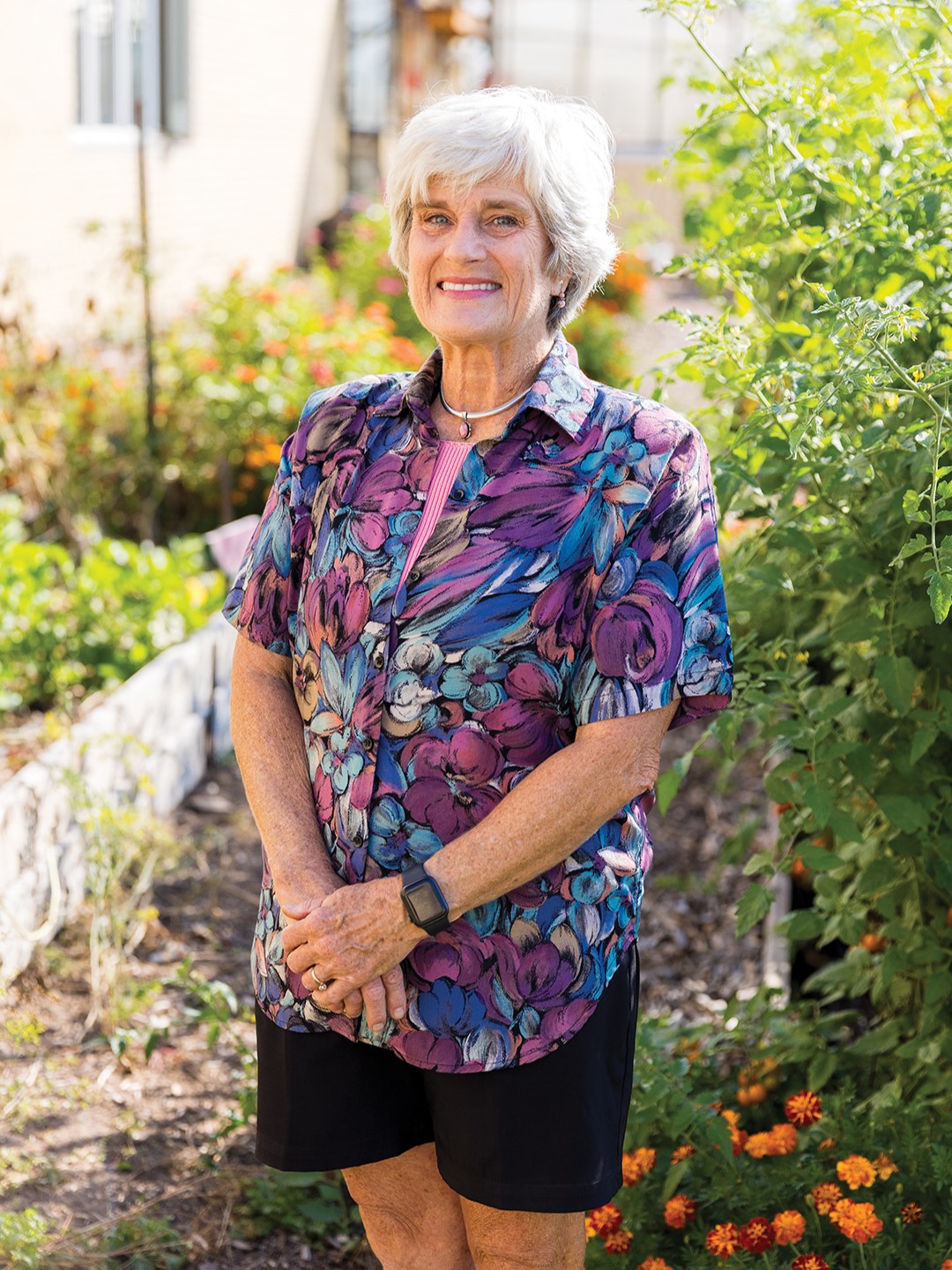
Sandy Madsen. Photos: Chris Emeott
Local master gardeners dig in and give back.
The St. Croix Valley Master Gardeners Association equips gardeners in Wisconsin’s Pierce and St. Croix counties to learn more about environmental stewardship and share their knowledge with neighbors, students and community members. Credentialed master gardeners volunteer to create and maintain spaces where people can encounter the rewarding process of growing food, flowers and pollinator habitats.
We spoke with three master gardeners, who have devoted themselves to the cause, about their path and budding plans.

Sandy Madsen has helped to maintain a garden at Houlton Elementary School in Houlton, Wisconsin, since 2009. The school curriculum includes student participation in the growing and harvesting processes. “Quality time in nature can’t be beat,” Madsen says. Working in the garden has a multitude of benefits for students and staff. The produce is used for school lunches, and the custodian cares for the garden, too.
Madsen has always gardened. During her upbringing in White Bear Lake, Madsen’s parents grew vegetables and flowers. Her interest was piqued when she met some master gardeners and picked their brains at a county fair booth. “It’s fun to ask questions and get answers. I love having answers,” Madsen says. As a master gardener, Madsen has developed a teaching style of drawing people in and encouraging participation. “I try not to talk ’til I’m blue in the face,” Madsen says.
The connection with other master gardeners provides a fun source of support, too. “We laugh about ourselves being down to earth,” Madsen says.
- Favorite Plant: “Peony. It was blooming when we got married. We’ve been married 52 years, so peonies are kind of special to me.”
- Best Plant Combo: “We put marigolds with everything. We plant onions between all the cruciferous vegetables (broccoli, cabbage, cauliflower, etc.).”
- Must-Have Tool: “An antique, little hand spade. It has an 18-inch handle that has a teardrop blade from my great-aunt Clara. Any transplants, that’s the tool.”
- Gardening Advice: “Don’t over plant.”
Matt Schmitz has his family to thank for his interest in gardening. From a young age, he could be found in his grandmothers’ gardens in western Wisconsin. His mom noticed and urged Schmitz to pursue his passion.
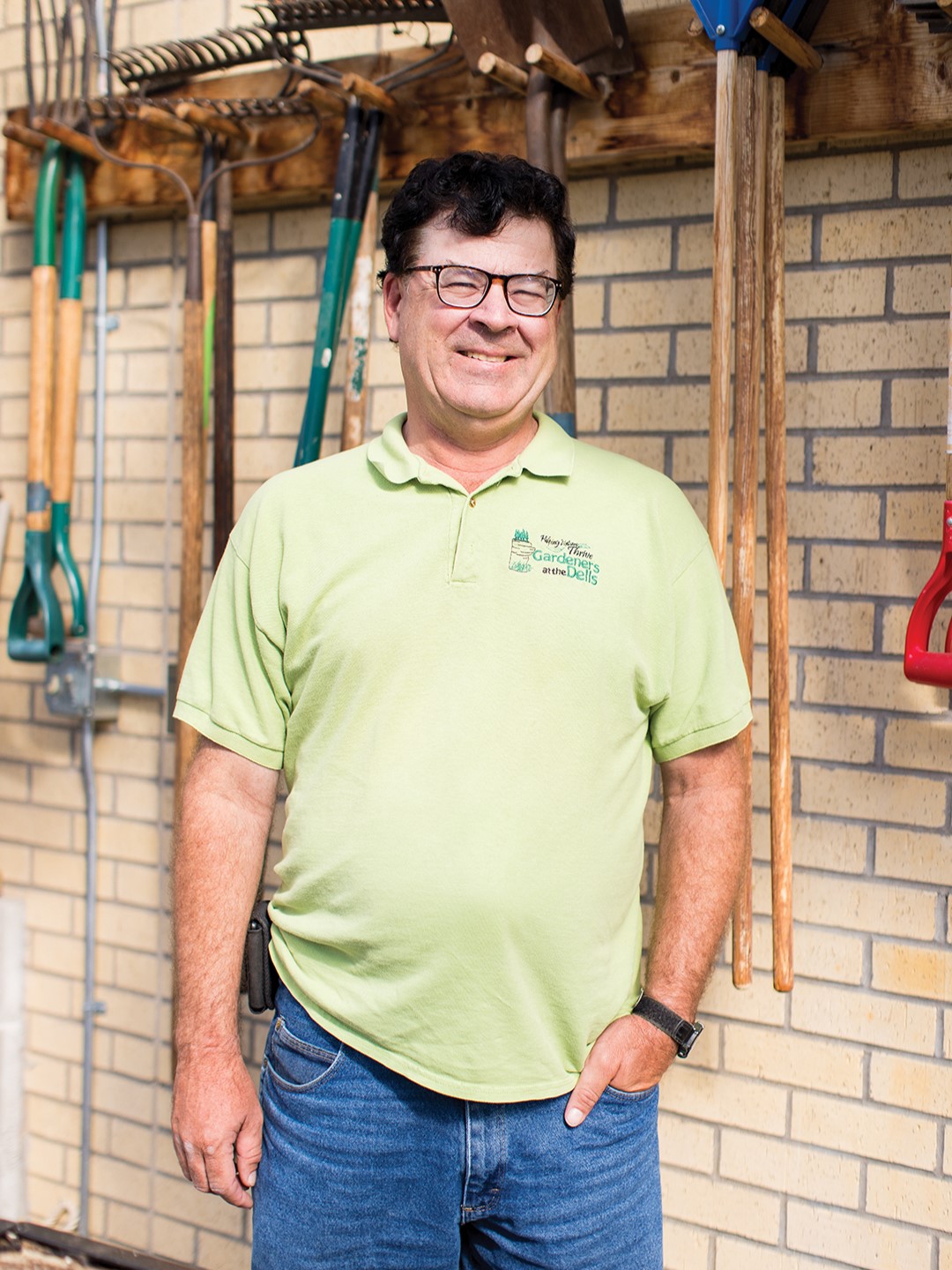
Matt Schmitz
With a horticulture degree from University of Wisconsin-River Falls and a 30-year career as a nurseryman, he came to be a master gardener quite naturally in the early 2000s. He is particularly interested in helping people understand what plants work best in various environments. As Schmitz says, “You can always let nature be a guide because there’s a plant for every location.”
The assuredness found in the garden can be a salve for the larger worries in life. Schmitz remembers learning about horticultural therapy in college and, to this day, understands the psychological impact of simply being out in the garden or among the trees. He’s aware of the soothing benefit of gardening, and wants others—especially children—to experience that, too. “Integrating that into the school curriculum, I think that’s really valuable,” Schmitz says.
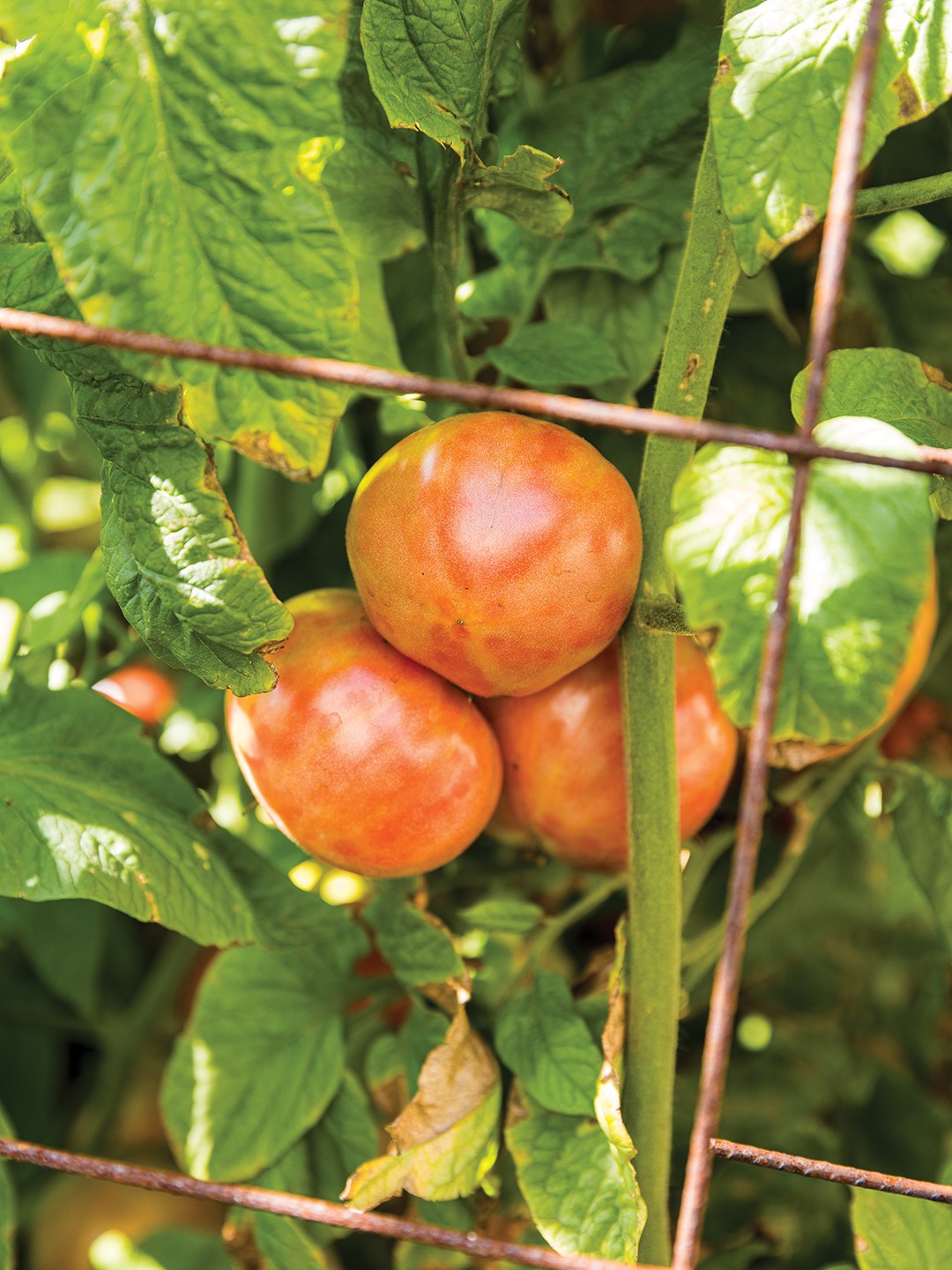
Most gardeners know that failure is part of the deal. Despite best efforts, sometimes a plan just doesn’t work. Being a master gardener doesn’t necessarily equate to having magical gardening powers. It can often just require having the right attitude. “Everybody can kill a plant or just get plain bad weather. Look at it as an opportunity to try something else,” Schmitz says.
- Best Plant Combo: “Rhubarb next to ornamental grass.”
- Must-Have Tool: “A hand fork.”
- Gardening Advice: “Trees, like kids, grow up.”
Connie Johnson has been a master gardener since 2014, drawn by the motivation to improve her gardening skills. “I just assumed I had a black thumb. I was not very successful; the weeds always took over, and [I] couldn’t understand what I was doing wrong,” she says.
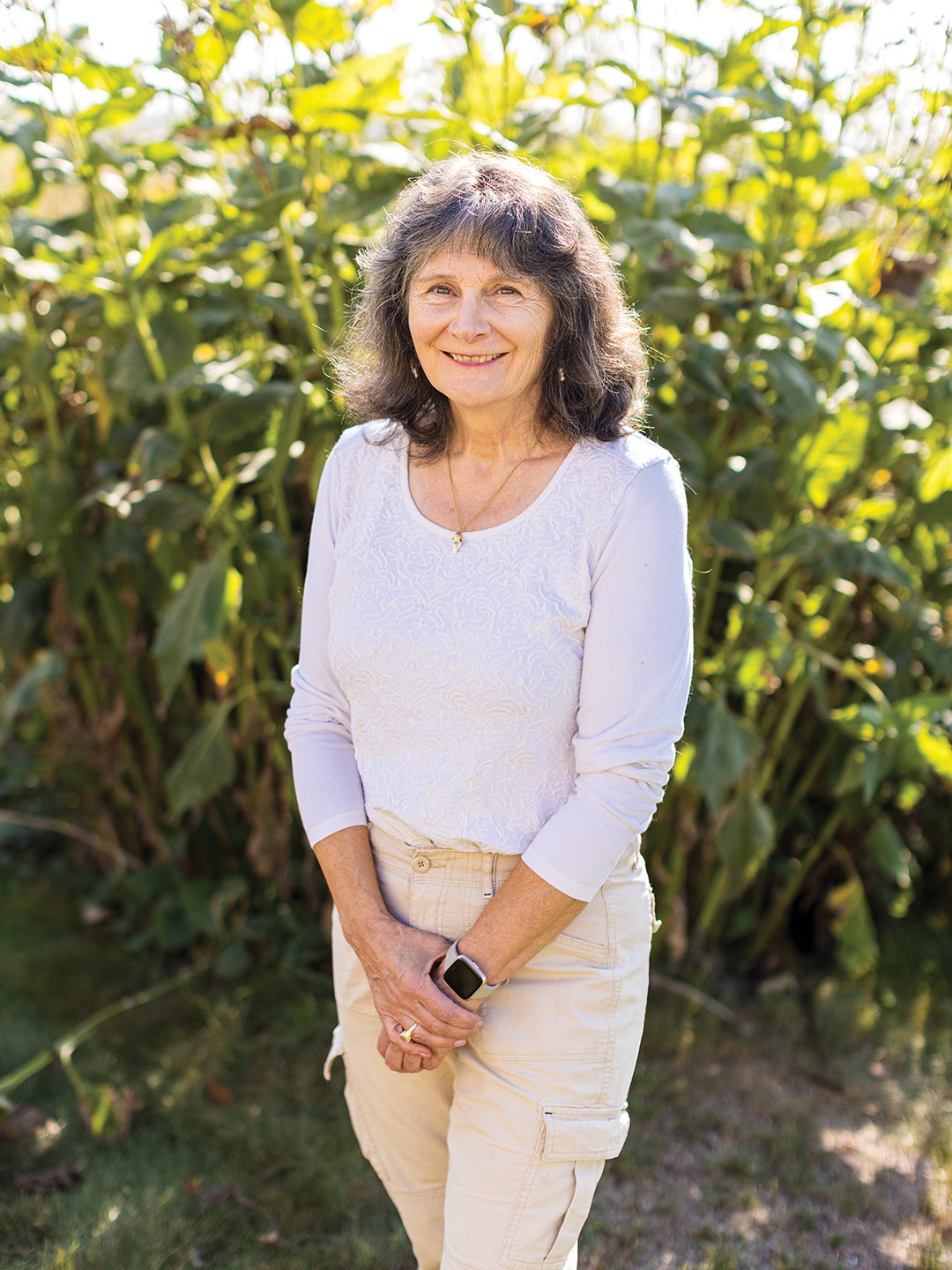
Connie Johnson
For Johnson, who volunteers at the St. Croix Valley Master Gardeners Demonstration and Learning Garden in River Falls, Wisconsin, it’s all about connection. Keeping a garden connects you to the other gardeners, to the pollinators, to yourself and to the wider community. “[It’s] good for you to get outside and have some hands-on time in nature. Seeing the value of your work out there—because sometimes, especially when it’s really hot and humid, it can be kind of excruciating—but it just makes it all worth it,” Johnson says.
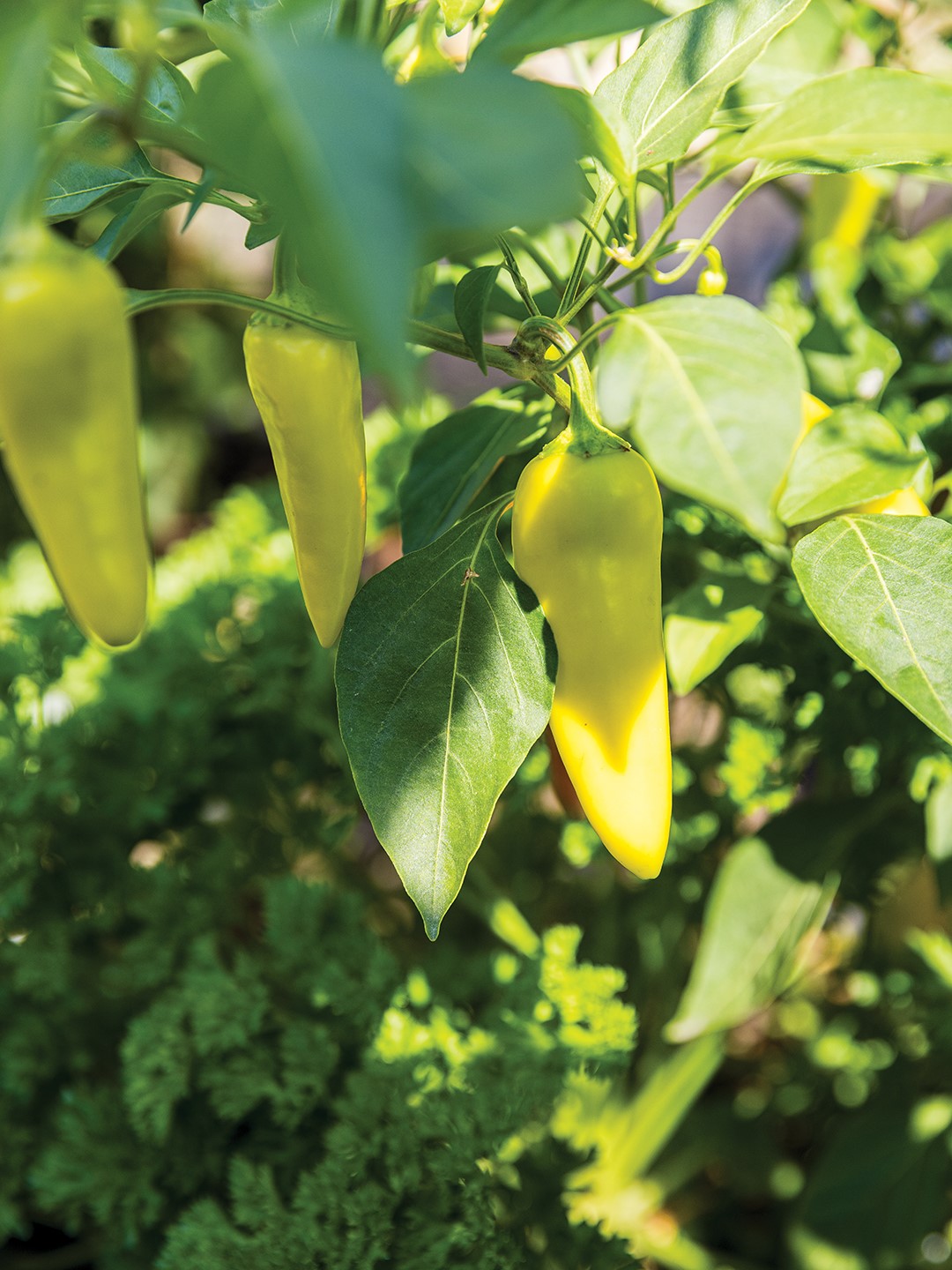
Johnson and others at the River Falls garden find great satisfaction in donating to the River Falls Food Pantry. Last year, they donated 450 pounds of produce. “That’s the reason to do it, to see that it’s going somewhere,” Johnson says.
- Favorite plant: “I like the Zowie!™ Yellow Flame zinnias.”
- Best Plant Combo: “With the zinnias, I intermix verbena, and then we also allow some native plants to grow.”
- Must-Have Tool: “It’s a short-handled, long shovel. I couldn’t get along if I’ve lost it, and I’ve come close to losing it a few times!”
- Gardening Advice: “Take the time and plan things out, and, once you’ve planted, mulch around your plants.”
Get Involved
Are you interested in becoming a master gardener? Whatever your interest is—veggies, fruits, perennials or prairies—there is a place for you. Master gardeners provide their communities with research-based learning opportunities through volunteerism and environmental stewardship.
Master gardeners in Wisconsin are credentialed by the University of Wisconsin Extension after completing a 12-week online class and providing 24 hours of volunteer service within the first year. In Minnesota, master gardeners are credentialed by the University of Minnesota Extension after completing a core course online (40–60 hours) and providing 50 hours of volunteer service within the first year. Volunteers must complete continuing education and volunteer service annually to stay credentialed.
Annual dues for St. Croix Valley Master Gardeners are $15 for an individual or $20 per household.
St. Croix Valley Master Gardeners
Facebook: St. Croix Valley Master Gardeners






















